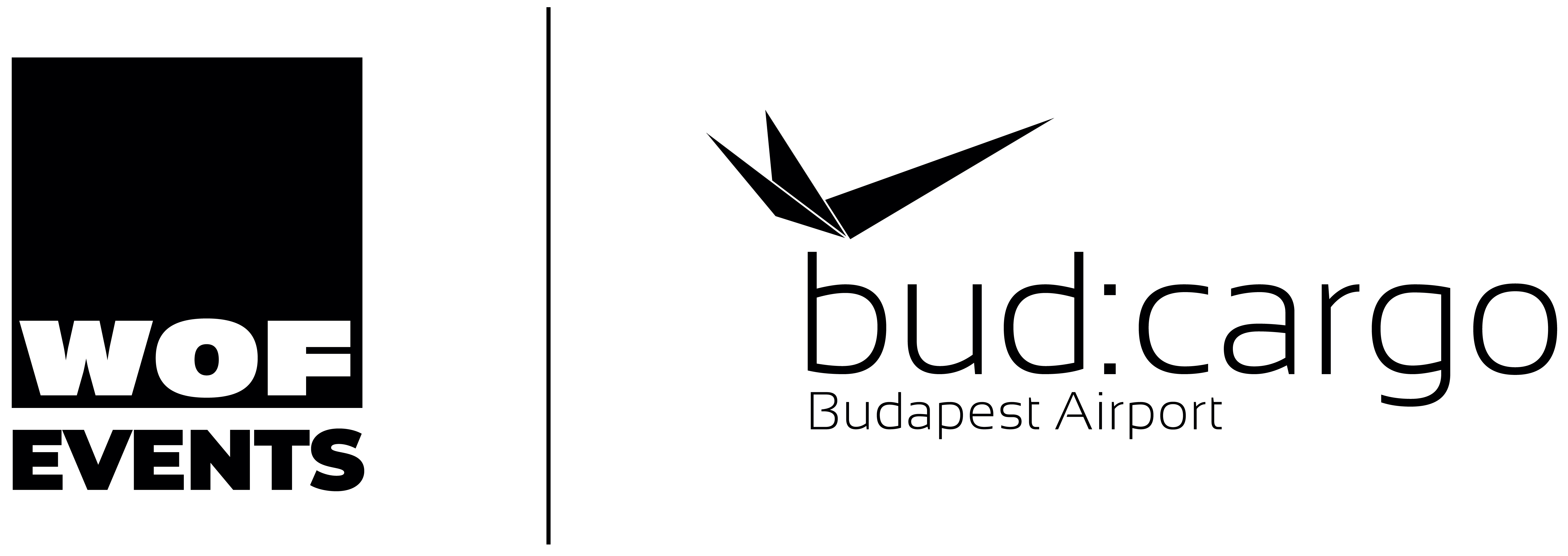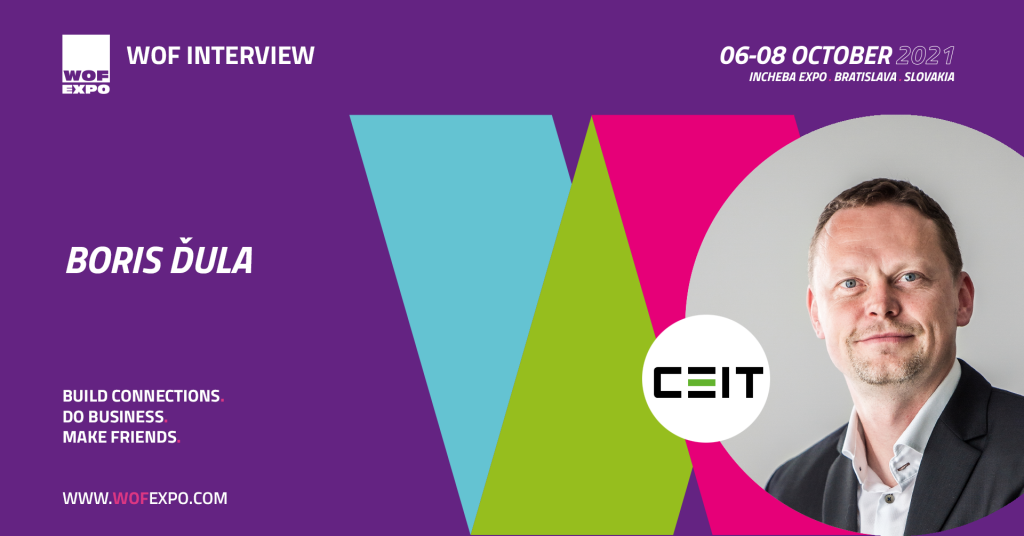Interview with BORIS DUĽA
| Mr. Boris Duľa is the Chief Sales Officer at CEIT.He studied management and automation at the Faculty of Electrical Engineering and Informatics of the Technical University in Košice, Slovakia. Mr. Duľa worked for ten years in the European Development Centre of Whirlpool in Germany. Since 2014, he led the CEIT company team of specialists focused on structural engineering, 3D scanning, additive manufacturing and rapid prototyping. In December of the same year, he was appointed CEO and Chairman of the Board, where he served until September 2020. He currently holds the position of Chief Sales Officer (CSO) as a member of the Board of Directors. |
1. CEIT is undoubtedly known for the development of modern technologies. Can you tell us some key solutions from CEIT that help increase business performance and efficiency? CEIT strategically develops in 3 basic areas, which are logistics automation, digital factory and its Factory Twin concept and production automation. In the field of logistics automation, our intelligent mobile robots (AGV) are probably the most well-known innovation. AGVs take care of reliable, efficient and secure automatic logistics in industrial halls. It is a complex system comprised of towers (AGVs), interchanges or dynamic conveyors, which take the material to the exact place at the correct time and can load and unload the material autonomously. They also process production data, react flexibly and can even make independent decisions. In the field of production automation, we focus on the design, manufacturing and implementation of automated robotic workstations, exactly according to customer requirements, where we emphasize the integration of modern technologies from reputable manufacturers. We develop new, and we innovate existing products – often, it is a cycle of activities from concept design through engineering to solve the requirements of industrial automation of product manufacturing before products are launched on the market. The digital factory works with a comprehensive digital image of a real factory, which allows changes to be made and their impact to be seen before they are implemented. Digital factory tools are most commonly used to design new or project and optimize existing production and logistics systems. As an example, I will mention our interactive CEIT Table, which is an excellent helper in creating production or logistics concepts. Just change the layout on the touch panel, and the system immediately evaluates the pros and cons. The biggest benefit is saving time and money. The superstructure of a digital factory is the Factory Twin concept, which is actually a synonym for the intelligent factory of the future. 2. Factory Twin is a concept that you developed at CEIT. Can you tell us a little more about it? As I said, Factory Twin is a kind of superstructure of the Digital Factory. In our understanding, it represents a complex cycle, from digitization through implementation itself to autonomous control and self-optimization. We have a set of specific solutions for each of these phases. The process starts with digital factory tools that carry huge benefits for industrial plants. Thanks to modern digitisation technologies, digital models of all elements of the business can be obtained, be they parts, products, technologies, production processes, people or management systems. If the plant has a digital or parametric model, any changes can be planed more easily, quickly, and especially more efficiently. Dynamic simulation and 3D visualization tools then help fine-tune all the details. However, we have gone further, and we have expanded this digital world, the digital model of a real business, to a virtual environment in Factory Twin. It is created by data collected from ubiquitous sensors in real business, creating a fact-based image of the real environment, important for further optimization. The added value of this data is enormous. Again, collecting, monitoring and visualising is only the first step followed by an analysis of facts and statistics. If we move towards real-time response, we are already talking about autonomous driving. This will be followed by the ability to predict, i.e. automatic problem prevention. By deploying artificial intelligence, we are getting into a phase of self-optimization, self-organization and reconfigurability, which we believe is the theme of the coming years. It is a complex and very sophisticated solution, built on sub-stages, each of which is important. Factory Twin is a response to expected technological developments. As far as real industrial practice is concerned, perhaps the best example is the Factory Twin version for reconfigurable logistics. Our smart logistics system implemented in the largest automotive plant in Slovakia has also won the prestigious European Automotive Logistics Awards 3. What will be the impact of Covid19 on the further development of business in your company? Do you think the market, in which you operate, has changed dramatically? The market was significantly affected by the onset of the pandemic and the subsequent measures taken. The automotive sector, to which we belong, was one of the most affected. Projects were suspended or postponed overnight. This challenging situation has inspired us to take advantage of our internal software and hardware engineering capabilities and start looking at the industry through these new, unexpected optics. We have prepared solutions for social distancing – a system based on Bluetooth Low Energy (BLE) technology, designed to monitor the distance between workers, for example, in industrial halls and factories. We were able to come to the market in a relatively short time with products, such as contactless Gate Temperature Monitoring, we developed UVC Box, which is designed for quick and safe disinfection of objects by using certified germicidal radiation destroying viruses, bacteria or mould. However, we want to continue to be a technology innovator and come to the market with new innovative solutions that help companies push their productivity to higher levels. 4. What is your opinion on the location of the WOF EXPO in the Central and Eastern European region? The automotive industry has a very strong background in the Central and Eastern European (CEE) region and makes a significant contribution to the GDP growth. However, the strength of the sector has undoubtedly been affected by a long pandemic period (and actually still is) The WOF EXPO could be an excellent opportunity to kick-start new business opportunities after a difficult economic period caused by COVID-19. EXPO will allow companies from different types of industrial transport from all over the world to present their services. Building strong and binding contacts is the key to any business, and WOF Expo offers a range of fantastic tools for quality networking. |
 | CEIT, a.s. is an innovative technology company providing comprehensive solutions in technical and process innovations, industrial automation, digitization and optimization, as well as intelligent internal logistics. The mission of the company with its own Research and Development Center is to support productivity, competitiveness and growth of industrial companies. The company based in Slovakia successfully operates across European markets, and its customers include major industrial companies, especially from the automotive, engineering, chemical and electrical industries. CEIT, a.s. has been a part of the global Asseco Group since 2017.
ceitgroup.eu |

